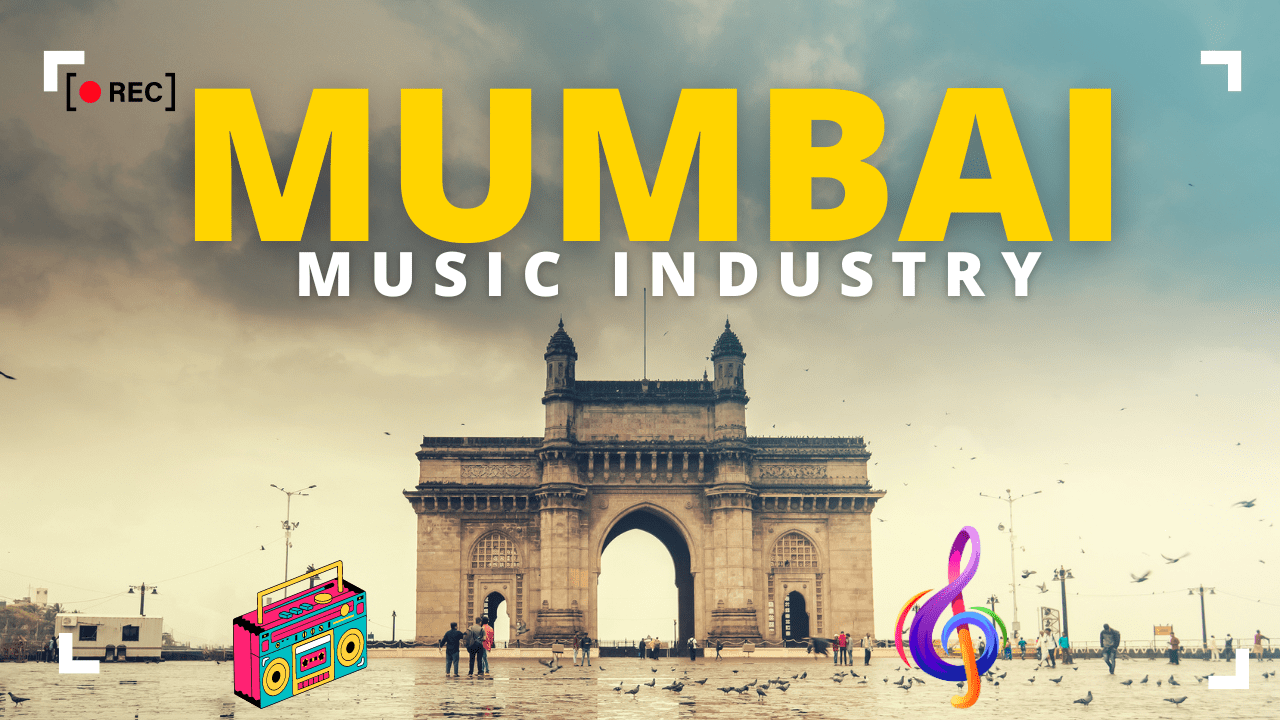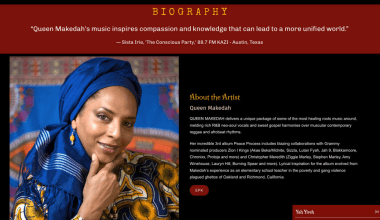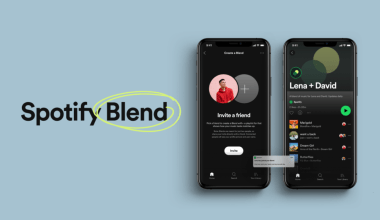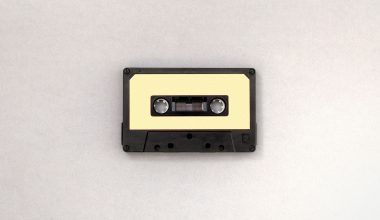Mumbai, often called the “City of Dreams,” is not just India’s financial capital. It’s also the heart of the music industry in Mumbai. This busy city has given birth to many musical legends and continues to nurture new talent. The music industry in Mumbai covers many genres, from Bollywood to indie and classical music. In this blog, we’ll explore the city’s rich history, vibrant culture, and different parts of the music industry in Mumbai. This guide will be helpful for both aspiring musicians and music lovers.
A Historical Perspective of Mumbai’s Music Scene
The music industry in Mumbai has a long history, starting in the early 20th century. The city has been a center for classical music. Legends like Lata Mangeshkar, Kishori Amonkar, and Ravi Shankar have all contributed to its rich cultural scene. They have not only enriched Mumbai’s music but also promoted Indian classical music worldwide. Over time, Mumbai has become known for Bollywood music, which has fans all over the world. The growth of playback singing, iconic music directors, and memorable tunes has made Bollywood music a key part of the city’s identity.
In the early days, Bollywood music was a mix of traditional Indian and Western influences. This created a unique sound that became a trademark of Indian cinema. The golden era of Bollywood music, during the 1950s and 60s, was known for soulful melodies and meaningful lyrics. Composers like S.D. Burman and Shankar Jaikishan, along with lyricists like Sahir Ludhianvi, made timeless classics. As Bollywood evolved, so did its music. The arrival of R.D. Burman brought a fresh sound that appealed to the younger generation.
The Evolution of Bollywood Music
Bollywood music is probably the most famous part of the music industry in Mumbai. It has changed a lot over the years, adapting to new tastes and trends. From the soulful songs of the 1950s and 60s to today’s upbeat tracks, Bollywood music offers something for everyone. The industry’s skill in blending traditional Indian sounds with modern styles has helped it gain global popularity. Music directors like A.R. Rahman, Shankar-Ehsaan-Loy, and Pritam have played big roles in shaping today’s Bollywood music.
A.R. Rahman, known as the “Mozart of Madras,” changed Bollywood music with his creative compositions. He used new technology in his music. Films like Roja, Bombay, and Dil Se brought a new sound to Indian cinema. Rahman mixed world music and electronica. His international success, including winning two Oscars for Slumdog Millionaire, made him a global icon.
In the 2000s, Bollywood music began to include more electronic dance music (EDM) and hip-hop. Collaborations with international artists became common. This led to a fusion of styles and genres. Today, Bollywood music continues to try new things, reaching a wide range of audiences in India and abroad.
Independent Music Scene in Mumbai
While Bollywood dominates, the independent music scene in Mumbai is also growing. Indie artists and bands explore genres like rock, pop, electronic, and folk music. Venues like The Quarter, Hard Rock Cafe, and antiSOCIAL are popular for live music. These places give emerging talent a stage to perform. They also help build a community among music fans.
Music festivals like NH7 Weekender and Magnetic Fields have boosted the indie scene. These events allow artists to reach more people. The festival culture has become a big deal, drawing music lovers from across India. These festivals offer platforms for both new and well-known artists. They also encourage music journalism and blogging, with many online sites covering indie music.
Digital technology has made it easier for indie artists to distribute music. Platforms like Spotify, Apple Music, and YouTube help artists reach a global audience. Affordable recording equipment and software have made high-quality music production accessible. This has led to a wide range of music styles, enriching Mumbai’s music scene.
Classical Music and Traditional Arts
The music industry in Mumbai also has a rich classical music tradition. Prestigious venues like the National Centre for the Performing Arts (NCPA) and Shanmukhananda Hall host classical music concerts. The city’s classical scene includes both Hindustani and Carnatic music. Artists from all over India perform here. The annual Sangeet Natak Akademi Festival is a highlight, featuring top musicians.
Mumbai’s classical music scene is a key part of the city’s culture. The city has a full calendar of classical music festivals and events. These showcase the richness of Indian classical traditions. The Sawai Gandharva Bhimsen Mahotsav is a famous event. It attracts classical music lovers and performers from all over. This festival, named after Bhimsen Joshi, features top artists and young talent.
Many music schools and academies in Mumbai offer training in classical music. Schools like the Indian Music Academy and Bhavans Cultural Centre teach vocal and instrumental music. These schools help preserve traditional music and encourage innovation.
The Role of Technology in Mumbai’s Music Industry
Technology has greatly impacted the music industry in Mumbai. Digital recording, music production software, and streaming platforms have made music more accessible. Artists can now produce high-quality music at home and reach a global audience. Platforms like Spotify, Apple Music, and YouTube make this possible. The digital age has democratized the music industry, giving indie artists a chance to shine.
Social media has also changed how artists connect with fans. Platforms like Instagram, Facebook, and Twitter are crucial for promoting music and building a brand. Artists use these platforms to share behind-the-scenes content, announce new releases, and engage with fans. Video platforms like YouTube and TikTok have further boosted this trend. Many artists gain fame through viral videos and online performances.
On the production side, technology allows artists to explore new sounds. Advanced production software and equipment let musicians create innovative compositions. Virtual instruments, sampling, and digital effects offer endless creative possibilities. This is especially beneficial for indie artists who may not have access to expensive studios.
Music Education and Institutions in Mumbai
Mumbai is home to several well-known music schools. These institutions offer courses in various music genres. The University of Mumbai offers courses in Indian music. The Shankar Mahadevan Academy and True School of Music teach contemporary and Western music. These schools play a big role in nurturing talent in the music industry in Mumbai.
The Shankar Mahadevan Academy offers courses in classical, Bollywood, and modern music. The academy has both online and offline classes, accessible worldwide. The True School of Music focuses on modern music education. It offers courses in music production, sound engineering, and performance. The school collaborates with international faculty and industry pros. This provides students with a well-rounded education.
Mumbai also has a tradition of informal music education. Many famous musicians offer private lessons and workshops. This informal system helps preserve traditional music and passes on knowledge to the next generation.
Challenges and Opportunities in the Mumbai Music Scene
The music industry in Mumbai has its challenges. The competition can be tough, and piracy is a big issue. Piracy affects artists’ earnings and undervalues their work. Despite these challenges, there are many opportunities. The city’s diverse music scene and the rise of indie music provide many chances for artists. Live performances, music festivals, and digital platforms offer new ways for artists to reach audiences and make money.
One major challenge is market saturation. With so many talented artists, it’s hard to stand out. Bollywood’s dominance makes it even tougher for indie and niche artists to get noticed. However, digital platforms and social media help level the playing field. They allow artists to reach a wider audience without needing a big label.
Piracy remains a significant problem. Despite efforts to stop illegal downloads and streaming, many artists lose revenue. This not only affects them financially but also devalues their work. The industry is working to address this issue through legal action and promoting legal streaming services.
On the positive side, Mumbai offers a wealth of opportunities. The city’s vibrant cultural scene and its status as a global entertainment hub make it an ideal place for a music career. Artists have access to a vast network of musicians, producers, and industry professionals. This makes Mumbai a great place to collaborate and innovate. The city’s diverse audience ensures a market for all types of music.
The Future of the Music Industry in Mumbai
The future of the music industry in Mumbai looks bright. Several trends indicate continued growth and innovation. Digital platforms are making it easier for artists to reach global audiences. The growing popularity of music festivals and live performances is boosting the city’s music scene. As technology advances, we can expect more innovative music production and distribution methods. This will only enhance the vibrancy of the music industry in Mumbai.
One key trend is the rise of streaming services. With physical music sales declining, streaming is now the main way people listen to music. This shift gives artists new revenue streams and global reach. As more people use streaming services, the demand for diverse content will grow. This presents an opportunity for Mumbai artists to explore new genres and styles.
Another trend is the increasing focus on live performances. While recorded music is still important, live events offer unique opportunities. They allow artists to connect with fans and earn money. The popularity of music festivals and concerts is likely to continue. Artists are also exploring new formats like virtual concerts to engage audiences.
The future also includes more collaboration and cross-genre experimentation. As Mumbai’s music scene diversifies, artists are working together across genres. This has led to unique, genre-blending music that reflects the city’s multicultural nature. Collaborations with international artists are also becoming more common, further broadening Mumbai’s music industry.
Conclusion
The music industry in Mumbai is a dynamic and diverse ecosystem. It continues to grow and evolve. From Bollywood to indie and classical music, the city offers a wide range of musical experiences. Mumbai’s unique mix of tradition and modernity, along with its acceptance of different styles, makes it a thriving hub for music lovers. As the industry adapts to new trends and technologies, Mumbai will continue to be a major player on the global music stage.
Mumbai’s music industry, with its rich history and vibrant present, reflects the city’s cultural diversity and innovative spirit. As new technologies and platforms emerge, the industry will continue to adapt. This will provide fertile ground for creativity. The future of the music industry in Mumbai is bright. The city will remain a key force in shaping the global music landscape. Whether you’re a fan of classical, Bollywood, or indie music, Mumbai has something for everyone. If you’re looking to explore the world of music, Mumbai is the place to be.
For further reading, explore these related articles:
- Understanding the Music Industry Business Model
- Ultimate Guide to Hip Hop Music Promotion
- Free Online Music Promotion: Guide for Independent Artists
For additional resources on music marketing and distribution, visit Deliver My Tune.






